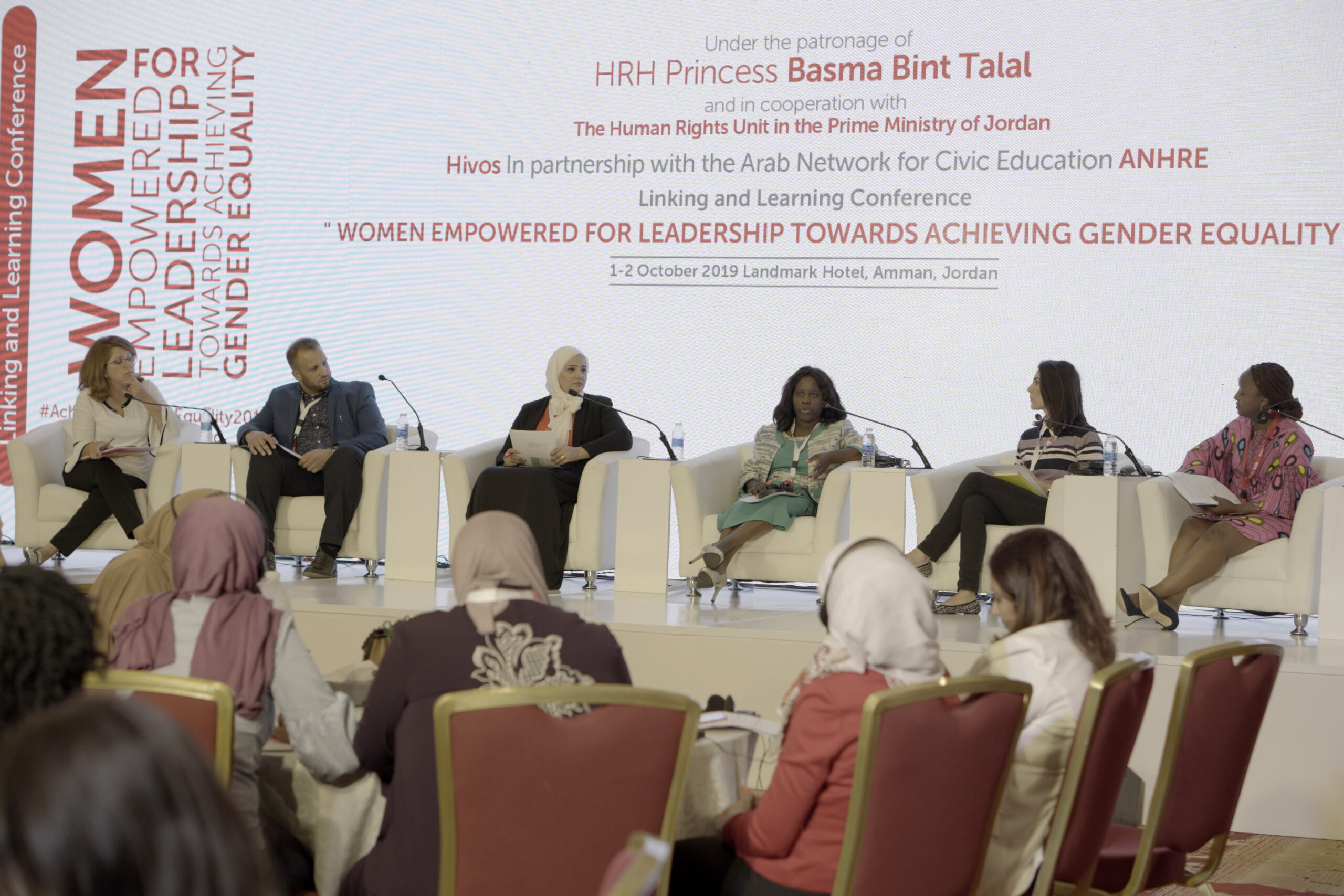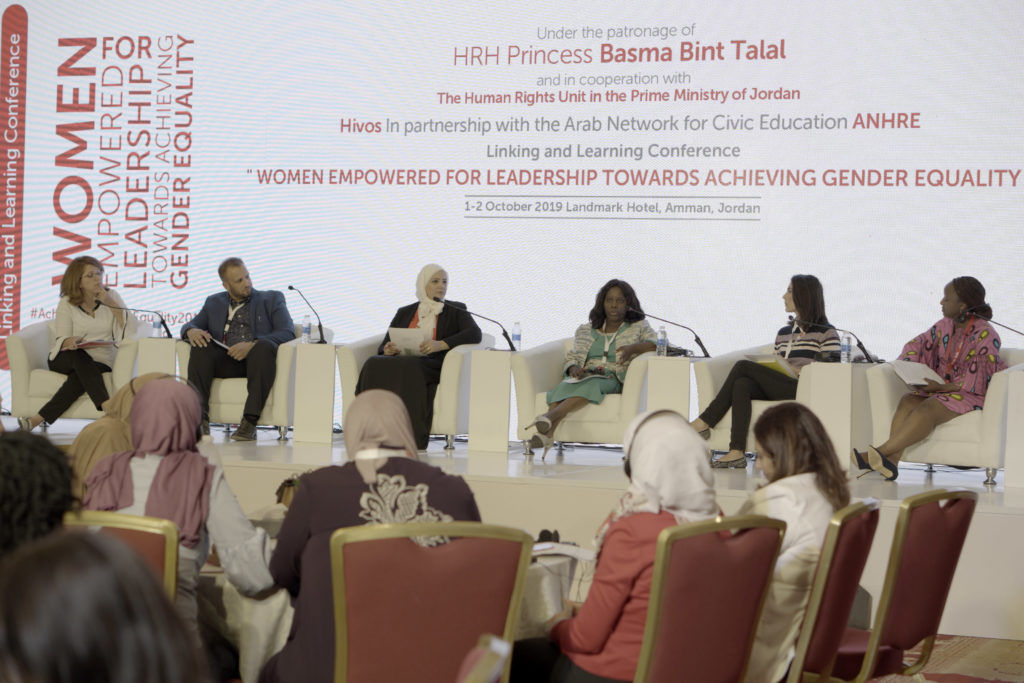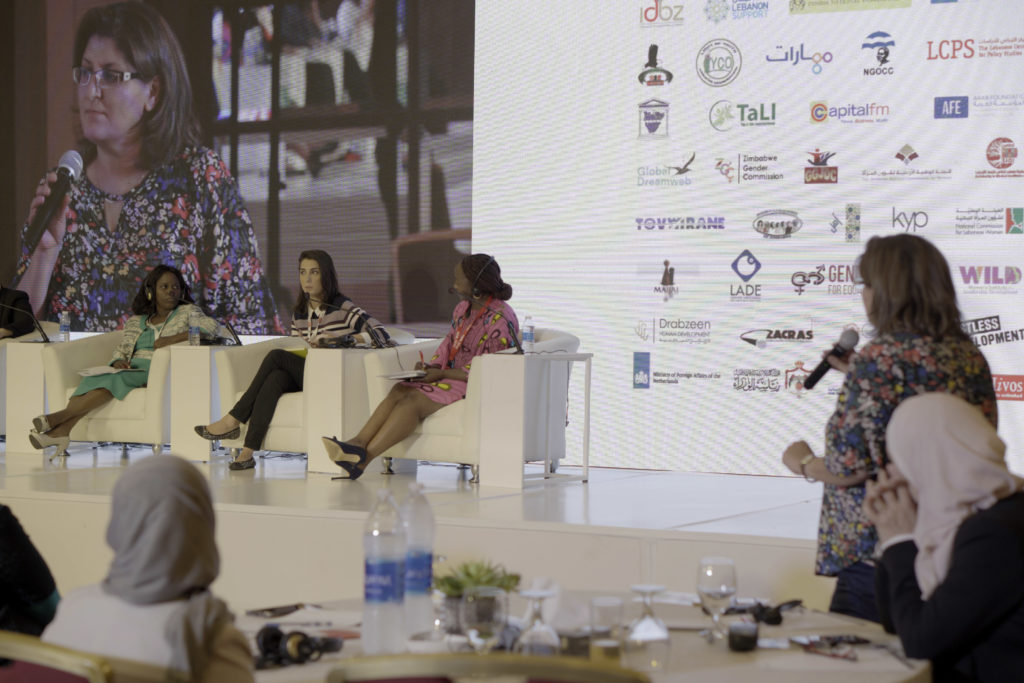id=”697″ id=”post-2106″ class=”wp-post-content-block ” itemscope itemtype=”http://schema.org/BlogPosting” itemprop=”blogPost”>
Linking and Learning conference highlights the importance of gender audits
By Laudy Issa
A panel of experts introduced the role and importance of gender audits and the International Labour Organization (ILO) methodology to move forward in achieving gender equality at the 2019 Hivos Linking and Learning conference.
A gender audit checks whether gender equality is institutionalised in private and public organisations, including in their policies, structures, budgets, and projects.
The Benefit of Gender Audits
“We use this tool as a way for gender mainstreaming, to monitor and track progress, and to establish a baseline against which progress can be measured,” said Michel Mzondo, the Hivos WE4L Monitoring and Evaluation officer.
Gender audits also allow organizations to change aspects of cultures that discriminate, whether through policies or within structures, and to identify the critical gaps and challenges, according to Mzondo.
The panel, facilitated by Diana Haddadin from the Jordanian National Commission for Women, also identified gender audits as a gateway to organizations for funders and supporting groups.
Juliet Kaira Chibuta, the executive director of Zambia National Women’s Lobby, also shared her experience in auditing public and private institutions over the past four years. Gender audits, according to Chibuta, helped her movement focus on the gaps that need to be filled for more women to occupy leadership positions. In Zambia, gender audits allowed feminist movements to recognize the need to focus on politics and lobbying political parties.
“It’s important to make sure that different institutions are following what is actually being conducted,” added Chibuta.
“If we understand the diagnostic, we can fill in the gaps,” said Dr. Yazan Abu Jbarah, who has extensive experience in promoting gender equality and has conducted more than 20 gender audits for a variety of institutions.
Resisting Gender Audits
The gender monitoring expert also discussed the difficulty in filling in the gaps because of the resistance that many institutions put in before, during, and after the audit.
Pascale Moussali from the National Commission for Lebanese Women also shared the resistance put up by municipalities, the government, different political parties, and syndicates.
“Women were the most gatekeepers,” said Moussali, specifically pinpointing her experience with the Order of Engineers and Architects. Despite only making up 18 percent of it, the women involved could not see the gender equality issues within their order.
Personal Experiences in Gender Audits, and Beyond
Shatha Alawneh, the program advisor of LEAD program, shared how her organisation proceeded in implementing a gender audit in municipalities. The first step was bringing in experts to perform the gender audit, choosing municipalities to focus on based on votes by local partners and according to the needed targets, and to proceed in ensuring municipalities implement the recommendations.
Moussali also shared her experience working with municipalities, focusing on the different issues and recommendations to move forward with following the gender audits.
“Women are held to a much higher standard than men in municipalities,” said Moussali. “Their work is also very difficult on the ground because of the structure of the municipality.”
Moussali wrapped up by sharing how women in municipalities are forced to work through committees, gaining the support of their colleagues, so that higher-ranking men can accept their personal pitches.
“One of the recommendations we put forth was to change the municipal law,” she said. “The imbalance of power really affects their work.”






